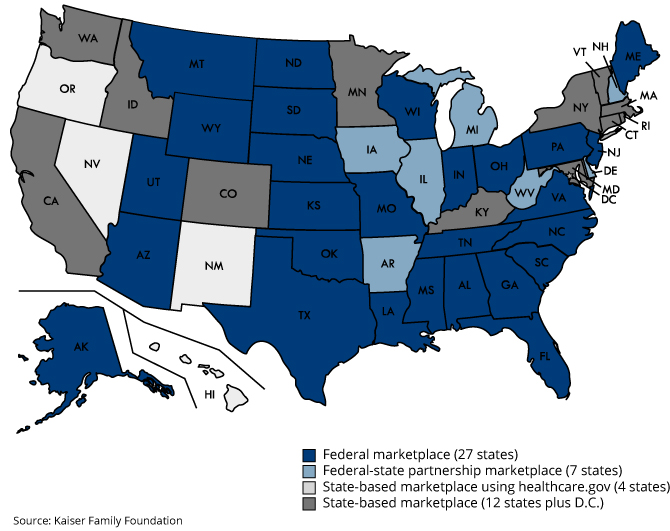The federal government is handling almost everything for health law marketplaces in a majority of states, but there are other configurations, too. Here is more information on each of our map categories:

Federal marketplaces: These 27 states chose to let the federal government set up their marketplaces. They all use healthcare.gov. A Supreme Court ruling in favor of the King v. Burwell plaintiffs would have eliminated or phased out subsidies in these states.
Federal-state partnership marketplaces: These 7 states operate some functions of their marketplaces, but they also rely on the federal government’s healthcare.gov website. The plaintiffs characterized these states as federal exchange states.
State-based marketplaces using healthcare.gov: These 4 states — Oregon, New Mexico, Nevada and Hawaii — tried to set up state-based exchanges, but for various reasons, they failed. They are all either using healthcare.gov already or will be doing so next year. The plaintiffs did not include them in their count of exchange states.
State-based marketplaces: These 12 states plus the District of Columbia all set up state-based marketplaces, and those marketplaces are functional. Subsidies were not in jeopardy there.






